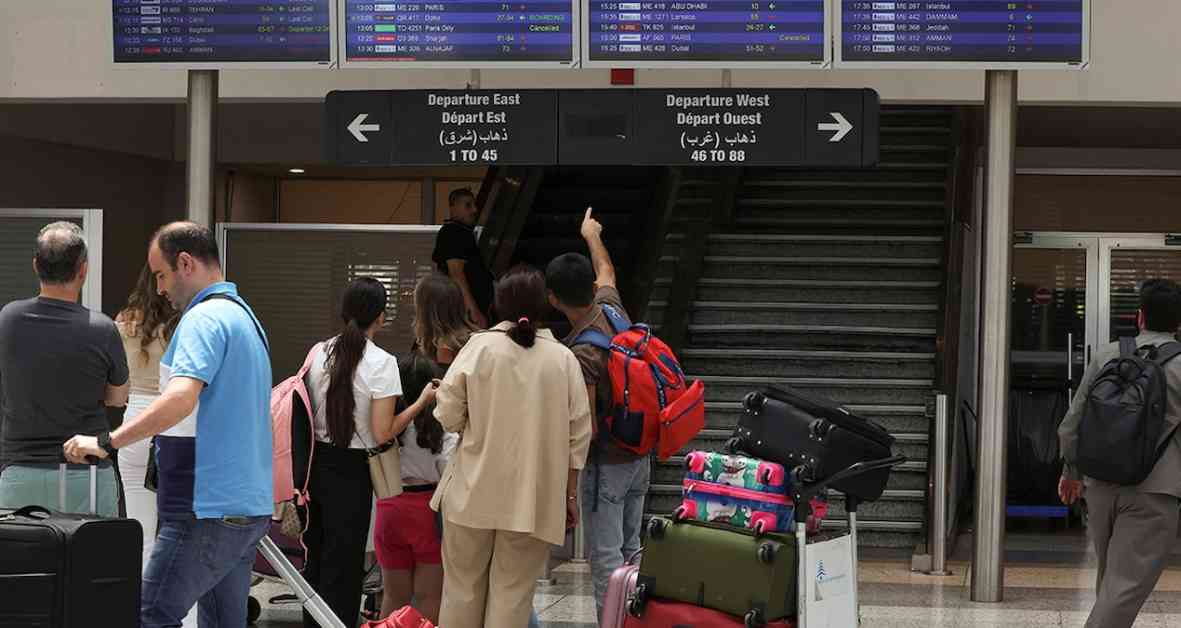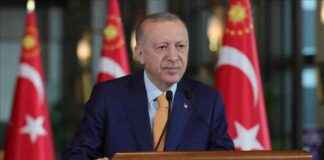Amid escalating tensions between Israel and Hezbollah in Lebanon, the Jordanian Ministry of Foreign Affairs has issued a critical written statement, urging its citizens to refrain from traveling to Lebanon due to Israel’s attacks on the country. The statement reiterated the call for Jordanian citizens to avoid traveling to Lebanon and urged those already in the country to depart as soon as possible.
The Jordanian Ministry of Foreign Affairs emphasized that the calls were made in order to ensure the safety and security of Jordanian citizens in Lebanon, given the ongoing threats posed by Israel’s attacks on Lebanese territories. The statement urged citizens to contact the Jordanian Embassy in Lebanon for assistance and guidance.
The recent escalation of tensions between Israel and Lebanon culminated in an Israeli air raid on southern Beirut on September 20, resulting in the tragic loss of 37 lives, including 3 children and 7 women. Hezbollah confirmed that among the casualties were 15 of its members, including high-ranking military commander Ibrahim Akil.
The violence continued with a series of attacks on September 17-18, involving the detonation of communication devices and radios followed by the deadly airstrike in Beirut, which claimed a total of 76 lives. The clashes between Israel and Lebanon along the border have been ongoing since October 8, 2023, occasionally intensifying into violent confrontations.
Impact on Regional Stability
The escalating tensions between Israel and Hezbollah in Lebanon have raised concerns about the stability of the region. The repeated attacks by Israel on Lebanese territories have not only resulted in loss of civilian lives but have also heightened the risk of further escalation and conflict. The Jordanian Ministry of Foreign Affairs’ warning to its citizens reflects the gravity of the situation and the need for caution in light of the volatile conditions in the region.
The ongoing clashes between Israel and Lebanon, with Hezbollah playing a significant role, have the potential to destabilize the entire Middle East region. The involvement of various parties in the conflict, coupled with the history of animosity and violence, poses a serious threat to peace and security in the area. The international community has been closely monitoring the situation, calling for restraint and dialogue to prevent further escalation.
Humanitarian Concerns
The recent wave of violence in Lebanon, fueled by Israel’s attacks and Hezbollah’s retaliatory actions, has resulted in a humanitarian crisis in the country. The loss of innocent lives, including women and children, underscores the urgent need for humanitarian assistance and support for those affected by the conflict. The escalating violence has also led to displacement and insecurity among the civilian population, further exacerbating the humanitarian situation in Lebanon.
The Jordanian government’s call for its citizens to leave Lebanon reflects the growing concern for the safety and well-being of individuals caught in the crossfire of the conflict. The need for humanitarian aid and protection for civilians in Lebanon is paramount, as the violence shows no signs of abating. International humanitarian organizations have been mobilizing resources and efforts to provide assistance to those affected by the conflict and to address the urgent humanitarian needs in the region.
Diplomatic Efforts and Calls for De-escalation
Amid the escalating tensions between Israel and Lebanon, diplomatic efforts have been underway to prevent further escalation and to promote dialogue and peace in the region. The international community has called for restraint and de-escalation, emphasizing the need for a peaceful resolution to the conflict. The United Nations and other diplomatic channels have been actively engaged in mediation efforts to ease tensions and to prevent further violence.
The Jordanian government’s warning to its citizens to avoid traveling to Lebanon is part of a broader diplomatic strategy to safeguard the interests and security of its citizens in the face of escalating tensions in the region. By urging its citizens to leave Lebanon and by providing support and assistance for their safe return, Jordan is taking proactive steps to protect its nationals from the risks associated with the conflict.
In conclusion, the escalating tensions between Israel and Hezbollah in Lebanon pose a serious threat to regional stability and security. The Jordanian government’s warning to its citizens underscores the gravity of the situation and the need for caution in light of the ongoing violence. Diplomatic efforts and calls for de-escalation are crucial in preventing further violence and in promoting dialogue and peace in the region. The international community must continue to engage in efforts to address the root causes of the conflict and to work towards a peaceful resolution that ensures the safety and security of all parties involved.





















